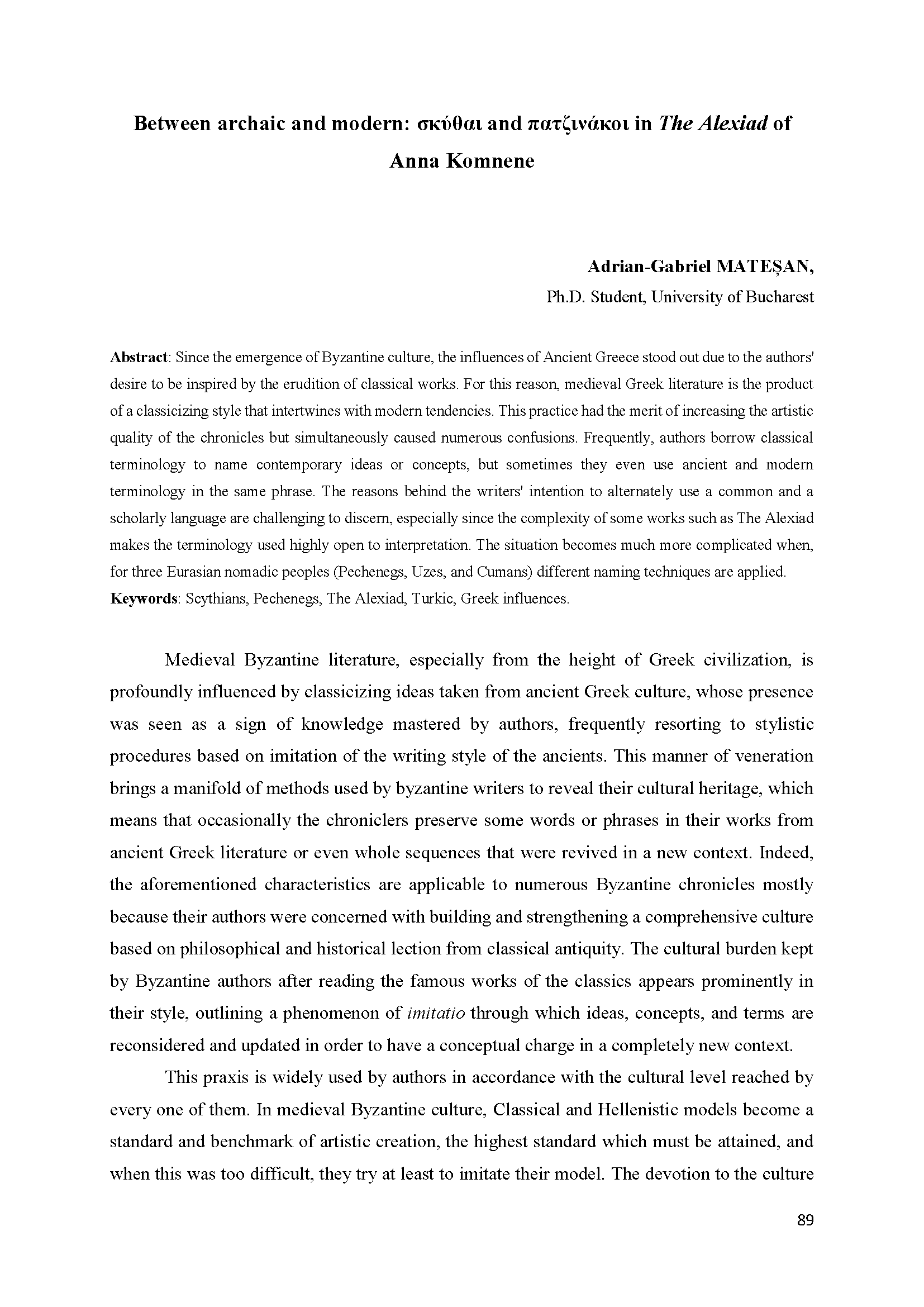Between archaic and modern: σκύθαι and πατζινάκοι in The Alexiad of Anna Komnene
DOI:
https://doi.org/10.31178/cicsa.2023.9.7Keywords:
Scythians, Pechenegs, The Alexiad, Turkic, Greek influencesAbstract
Since the emergence of Byzantine culture, the influences of Ancient Greece stood out due to the authors' desire to be inspired by the erudition of classical works. For this reason, medieval Greek literature is the product of a classicizing style that intertwines with modern tendencies. This practice had the merit of increasing the artistic quality of the chronicles but simultaneously caused numerous confusions. Frequently, authors borrow classical terminology to name contemporary ideas or concepts, but sometimes they even use ancient and modern terminology in the same phrase. The reasons behind the writers' intention to alternately use a common and a scholarly language are challenging to discern, especially since the complexity of some works such as The Alexiad makes the terminology used highly open to interpretation. The situation becomes much more complicated when, for three Eurasian nomadic peoples (Pechenegs, Uzes, and Cumans) different naming techniques are applied.





